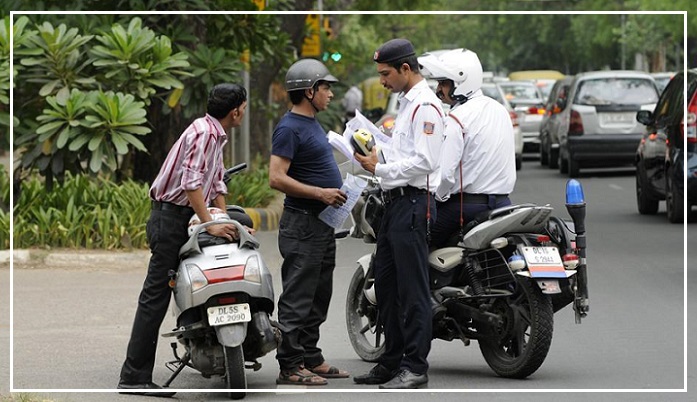During a public interest lawsuit hearing that sought the establishment of virtual traffic courts in the state, the Gujarat government informed the High Court that the implementation of the One Nation, One Challan policy is underway.
The Ministry of Road Transport and Highways launched the One Nation, One Challan initiative to unify all necessary authorities, such as traffic police and the Regional Transport Office (RTO), on a single platform for seamless challan collection and data transmission.
The integrated system leverages the CCTV network to identify traffic violations and uses apps like VAHAN and SARATHI to obtain the vehicle’s registration number.
An e-challan is then generated with the corresponding penalty amount and sent to the vehicle’s registered mobile number.
The One Nation, One Challan initiative has been in operation in three commissioner regions of Gujarat, namely Ahmedabad, Rajkot, and Surat, since January 16.
The implementation in Vadodara is currently underway, and the Gujarat government has informed the High Court that it is renewing its maintenance contract with L&T for the CCTV network in Vadodara.
How will the system of ‘One Nation, One Challan’ integrate?
DCP Traffic Safin Hasan of Ahmedabad City Police stated that prior to the implementation of the One Nation, One Challan policy, it was not possible to obtain details of the ownership of a vehicle from a different state using the CCTV network for penalty.
This was due to the lack of integration in the database.
According to DCP Traffic Safin Hasan of Ahmedabad City Police, the integration of all states’ RTO and traffic police data with the support of National Informatics Centre (NIC) servers has enabled the authorities to access the data of a vehicle captured violating traffic rules on CCTV, even if it belongs to a different state.
“If someone coming from Chhattisgarh is captured violating traffic regulations on CCTV, the vehicle’s registration number and its related data can be accessed by the Ahmedabad police, and the challan will be sent directly to the mobile number mentioned at the time of the vehicle’s registration,” he said.
E-challans are now transferred through SMS to mobile phones or by mail if a phone number is not provided. However, the NIC is planning to launch its own app for this purpose.
How virtual traffic court works?
The implementation of virtual traffic courts is aimed at eliminating the need for litigants to appear in court in person.
If the challan amount is not paid within 90 days, the matter is automatically referred to a virtual court and legal proceedings begin.
Warrants are sent to the offender’s mobile phone, and if the fine is not paid, legal action will be taken.
The objective of virtual courts is to reduce the burden of physical court appearances for the accused.
Individuals accused of traffic violations can search for their case on the virtual court’s website, and the case will be marked as “disposed of” once the fine is successfully paid.
At present, a single court, namely court number 16 of Ahmedabad city sessions court, has been designated as the virtual court for the whole state of Gujarat, which will solely handle matters related to the “One Nation, One Challan” program.
According to Safin Hasan, more jurisdictional courts will be established gradually.
A petition filed by the Gujarat High Court indicated that around 49 lakh e-challans were issued in Surat alone between April 2013 and August 2020, amounting to a fine of Rs. 136 crore, out of which Rs. 122 crore is still outstanding.
